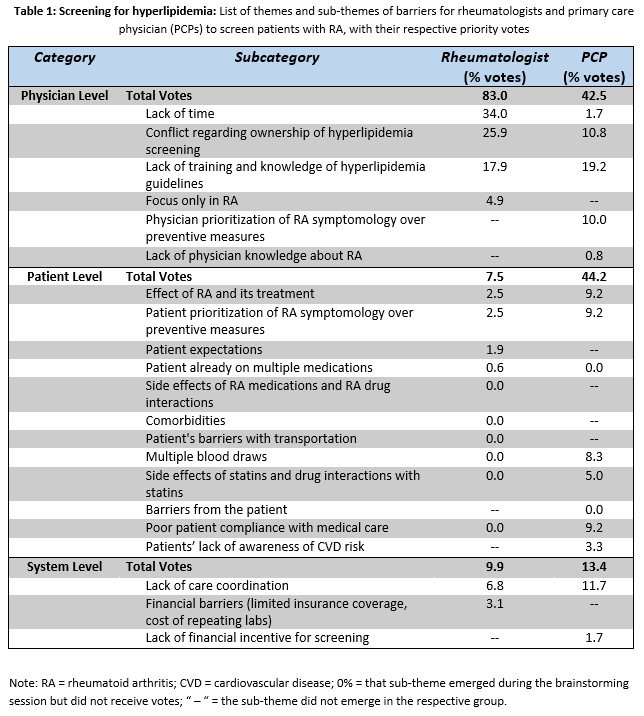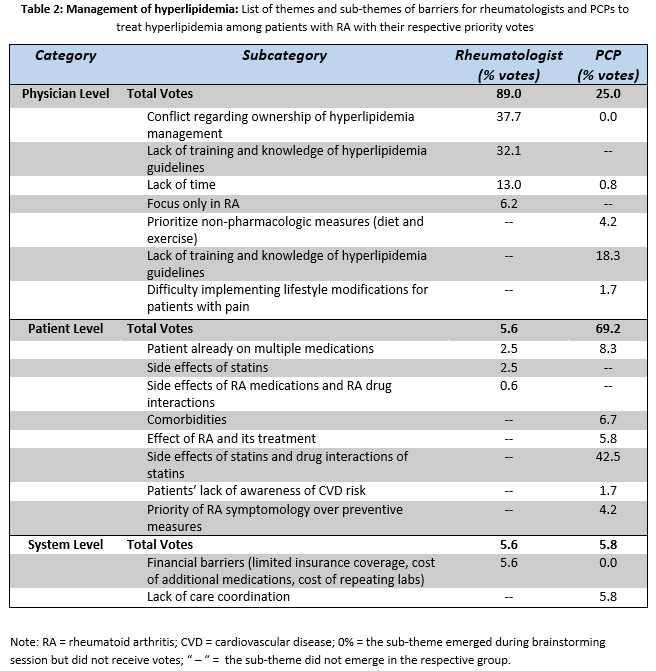Session Information
Date: Sunday, October 21, 2018
Title: Rheumatoid Arthritis – Diagnosis, Manifestations, and Outcomes Poster I: Comorbidities
Session Type: ACR Poster Session A
Session Time: 9:00AM-11:00AM
To cite this abstract in AMA style:
Navarro-Millán I, Cornelius-Schecter A, O'Beirne R, Morris M, Goodman S, Cherrington A, Fraenkel L, Curtis JR, Safford MM. Views of Primary Care Physicians and Rheumatologists Regarding Screening and Management of Hyperlipidemia Among Patients with Rheumatoid Arthritis [abstract]. Arthritis Rheumatol. 2018; 70 (suppl 9). https://acrabstracts.org/abstract/views-of-primary-care-physicians-and-rheumatologists-regarding-screening-and-management-of-hyperlipidemia-among-patients-with-rheumatoid-arthritis/. Accessed .« Back to 2018 ACR/ARHP Annual Meeting
ACR Meeting Abstracts - https://acrabstracts.org/abstract/views-of-primary-care-physicians-and-rheumatologists-regarding-screening-and-management-of-hyperlipidemia-among-patients-with-rheumatoid-arthritis/


